Dub is an electronic musical style that grew out of reggae in the late 1960s and early 1970s. It is commonly considered a subgenre of reggae, though it has developed to extend beyond that style. Generally, dub consists of remixes of existing recordings created by significantly manipulating the original, usually through the removal of vocal parts, emphasis of the rhythm section, the application of studio effects such as echo and reverb, and the occasional dubbing of vocal or instrumental snippets from the original version or other works.

Culture are a Jamaican roots reggae group founded in 1976. Originally they were known as the African Disciples. The one constant member until his death in 2006 was Joseph Hill.

Joseph Hill was the lead singer and songwriter for the roots reggae group Culture, most famous for their 1977 hit "Two Sevens Clash", but also well known for their "International Herb" single. Hill recorded twenty-two albums.

The Mighty Diamonds were a Jamaican harmony trio, recording roots reggae with a strong Rastafarian influence. The group was formed in 1969 and were best known for their 1976 debut album, Right Time, produced by Joseph Hoo Kim, and the 1979 release, Deeper Roots.
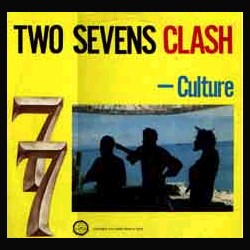
Two Sevens Clash is the debut album by roots reggae band Culture, recorded with producer Joe Gibbs at his own Joe Gibbs Recording Studio in Kingston in 1976, and released on Gibbs' eponymous label in 1977. The album's title is a reference to the date of 7 July 1977.

I.D. is an album by the Jamaican band the Wailers Band, released in 1989. Most of the songs were written by Junior Marvin; the band had around 300 songs to consider.
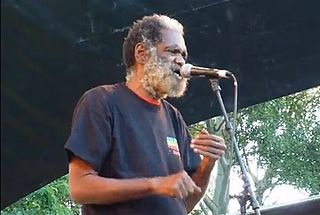
Kenneth Byles, also known as "Junior Byles", "Chubby", or "King Chubby", is a Jamaican reggae singer.

Mistress Music is an album by the Jamaican musician Burning Spear, released in 1988 by Slash Records. It was produced by Burning Spear and Nelson Miller. Burning Spear supported the album with a North American tour.

Baldhead Bridge is the second album by the Jamaican roots reggae band Culture, released on Joe Gibbs in 1978.
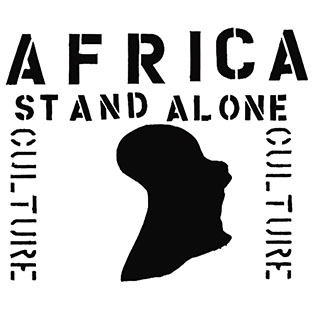
Africa Stand Alone is a 1978 album by Jamaican roots reggae band Culture. It was recorded with engineer Sylvan Morris at Harry J's Studios, Kingston, in the interim between the band's sessions with producers Joe Gibbs and Sonia Pottinger, and produced by Jamie Hatcher and Seymour Cummings.

The Jolly Boys are a mento band from Port Antonio, Jamaica. It was formed in 1945 and had great commercial success in the late 1980s and 1990s among reggae and world music fans. They released a new album in 2010 Great Expectation and are currently the house band at GeeJam, a hotel in Port Antonio.

Everton BlenderEverton Dennis Williams, in Clarendon, Jamaica) is a reggae singer and producer, known for his smooth, crooning, tenor vocals, up-tempo arrangements, and spiritually uplifting themes, successfully bridging the gap between roots reggae and dancehall.

The Prophets is an album by the Ivorian musician Alpha Blondy, released in 1989. He is credited with his band, the Solar System. Blondy sang in French, Dioula, Arabic, and English.
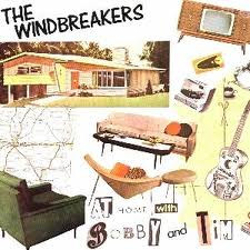
At Home with Bobby and Tim is an album by the American power pop duo the Windbreakers, released in 1989. The album marked a reunion for Tim Lee and Bobby Sutliff, who had spent a few years working on solo projects.

Toots in Memphis is an album by the Jamaican reggae musician Toots Hibbert. Released in 1988, Toots in Memphis was recorded without the Maytals. The majority of the album's tracks are covers of American R&B songs.

Too Wicked is an album by the British reggae band Aswad, released in 1990.

Unity is an album by the rap and reggae musician Shinehead, released in 1988.

Look at Love is an album by the Jamaican musician Judy Mowatt, released in 1991. Mowatt supported the album with a North American tour.

Serious Business is an album by the Jamaican band Third World, released in 1989. "Forbidden Love" was the first single. Third World supported the album with a North American tour.
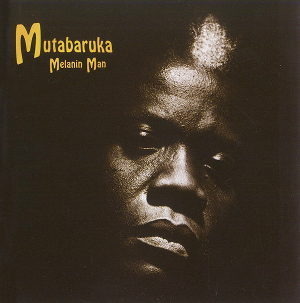
Melanin Man is an album by the Jamaican musician Mutabaruka, released in 1994. Mutabaruka supported the album with a North American tour that included shows with Speech. "Bone Lie" was a hit in Jamaica.



















